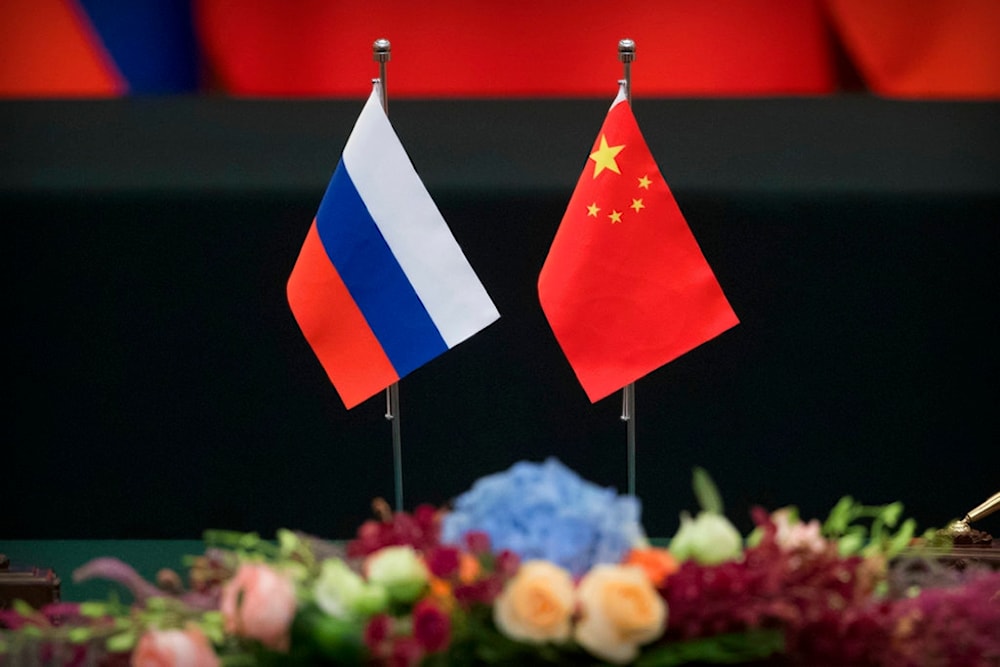Putin, Xi agree that US working to disrupt affairs of other states
The two leaders jointly denounced the "US policy of interfering in the internal affairs of other states."
-

Russian, left, and Chinese flags sit on a table before a signing ceremony at the Great Hall of the People in Beijing, Friday, June 8, 2018 (AP)
The Kremlin on Thursday reported details of a phone conversation between Russian President Vladimir Putin and Chinese President Xi Jinping.
According to Kremlin aide Yuri Ushakov, the two leaders accused the US of interference in their respective countries' affairs.
They jointly denounced the "US policy of interfering in the internal affairs of other states."
"The leaders of the two countries realize that the US is practically implementing a policy of double containment, (toward) both Russia and China," Ushakov said.
Read more: Putin praises Sino-Russian trade relations at Eastern Economic Forum
Touching upon the issue of US interference in Taiwan, the Kremlin said the Russian President reaffirmed his position in support of the 'One China' principle.
"In discussing the situation in the Asia-Pacific region, the Russian President reaffirmed his principled position on the Taiwan issue, which is to support the 'One China' policy," the Kremlin said.
On his part, the Chinese leader said that Russia and China "should closely collaborate strategically, defend the sovereignty, security, and development interests of their respective countries, and resolutely oppose interference in internal affairs by external forces", a readout from Chinese state broadcaster CCTV stated.
Xi further wished Putin well in his coming presidential election, the Kremlin said.
"Xi said he knows that Russia is now in the midst of an election campaign and wished the upcoming elections in March to be successful," Ushakov said.
BRICS expansion
This comes against the backdrop of a recent expansion of the BRICS organization.
With the recent admission of Saudi Arabia, Iran, Egypt, Ethiopia, and the UAE, the bloc has become a global oil powerhouse.
BRICS today controls 42% of global oil production. A big addition of costs comes from Saudi Arabia, UAE, and Iran.
BRICS also accounts now for 35% of global oil consumption, which means they have enormous power on the demand side as well.
For instance, if Saudi Arabia faces the risk of receiving sanctions from Western economies, they could simply sell oil to the BRICS nations, including India and China.
This effectively shifts the balance of power in favor of the Global South over the members of the G7, who traditionally controlled the demand for purchasing oil.
Overall, these measures add up to global trends of de-dollarization, spearheaded in part by Russia and China.

 3 Min Read
3 Min Read








